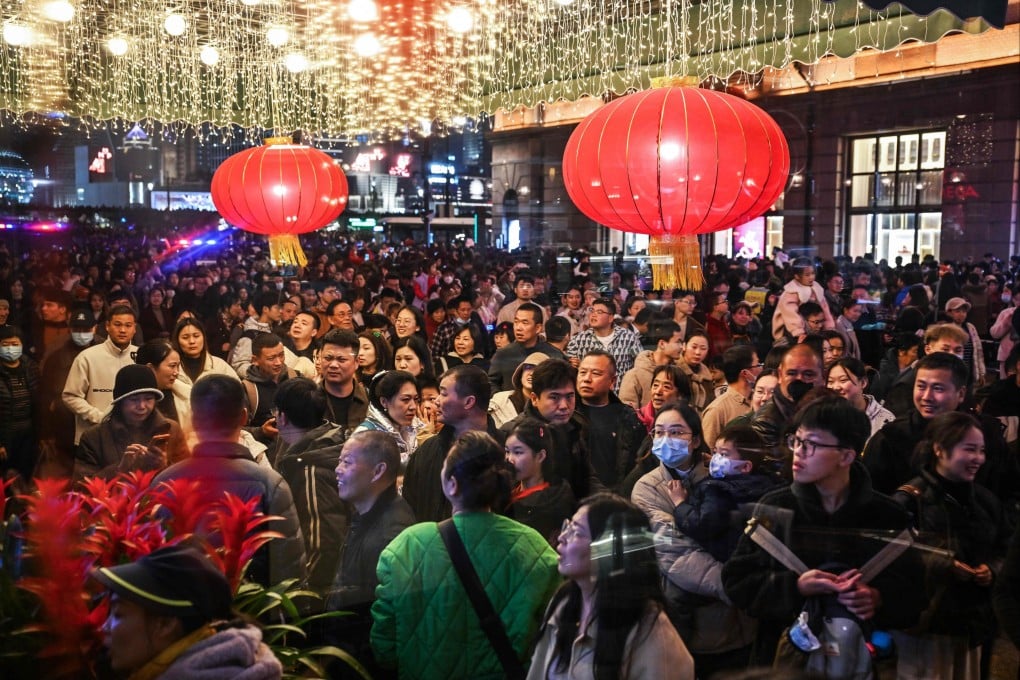My Take | China’s Labour Day ‘golden week’ controversy reflects the limits of Beijing’s consumer spending push
- For some Chinese workers, the arrangement is a bit too intentional and the altered calendar may end up adding work pressure that will dampen the holiday mood
- The original meaning of Labour Day has gradually weakened, with the festival gaining new meaning in enriching middle-class lifestyles instead of worker’s rights

China’s special calendar for the Labour Day holiday has stirred controversy. According to the official arrangements, Chinese workers will start a five-day holiday from Wednesday. But the trick is that only one day, May 1, is an actual holiday. May 4 and 5 is a weekend while May 2 and 3 are compensation for two extra working days on April 28, which was Sunday, and May 11, a Saturday.
The purpose of the rejigging is to create a “golden week” holiday based upon the one-day holiday, so that Chinese workers can arrange holiday plans during the five consecutive days off to boost the country’s consumer spending. In a likely scenario, when tens of millions of Chinese households decide to take advantage of the holiday, it will provide a much-needed shot in the arm for tourism on the mainland and even brighten economic prospects. Hong Kong is also hoping for a mainland tourist influx in the coming week to help struggling local merchants and restaurants.
But for some Chinese workers, the arrangement is a bit too intentional and the altered calendar may end up adding work pressure that will dampen the holiday mood. “So, I have to work from 9am to 9pm for six days a week, twice, to celebrate a holiday that is designed for protecting worker rights,” according to one meme circulating on Chinese social media.
The controversy partly reflects the challenges in shifting to a consumer-driven growth model. While China has been keen to rely more on consumers – instead of debt-ridden local government and state-owned enterprises – to drive growth, the institutional mechanics are actually not in favour of the endeavour. It is hoped that Chinese wage-earners will splurge as much as possible, but they still have to work extra days to earn a time window to do it.
The golden week concept is relatively new for Chinese society. It started in 1999 when then Premier Zhu Rongji decided to boost domestic demand, as China’s exports were hit hard by the Asian financial crisis. International Labour Day, which falls on May 1, became one of China’s three weeklong holidays, along with National Day in October and the Lunar New Year. In 2007, China tweaked its holiday arrangements by shortening the public holiday for Labour Day to one day.
Along with their hailed roles in unleashing consumer spending, the golden weeks have changed Chinese society. Before their introduction, leisure activities like summer breaks in government-designated resorts was a privilege reserved for those with special roles and functions, but the golden weeks made holiday plans and paid annual leave a widely accepted concept.

The original meaning of Labour Day – unifying the working class to fight for worker’s rights, or highlighting socialist values in voluntary labour – has gradually weakened, with the festival gaining new meaning in enriching middle-class lifestyles. As such, golden weeks have facilitated a role change among the Chinese working population, from frugal hardworking socialists who artificially suppressed personal wants, to unapologetic modern consumers ready to seek leisure and pleasure from the marketplace.
